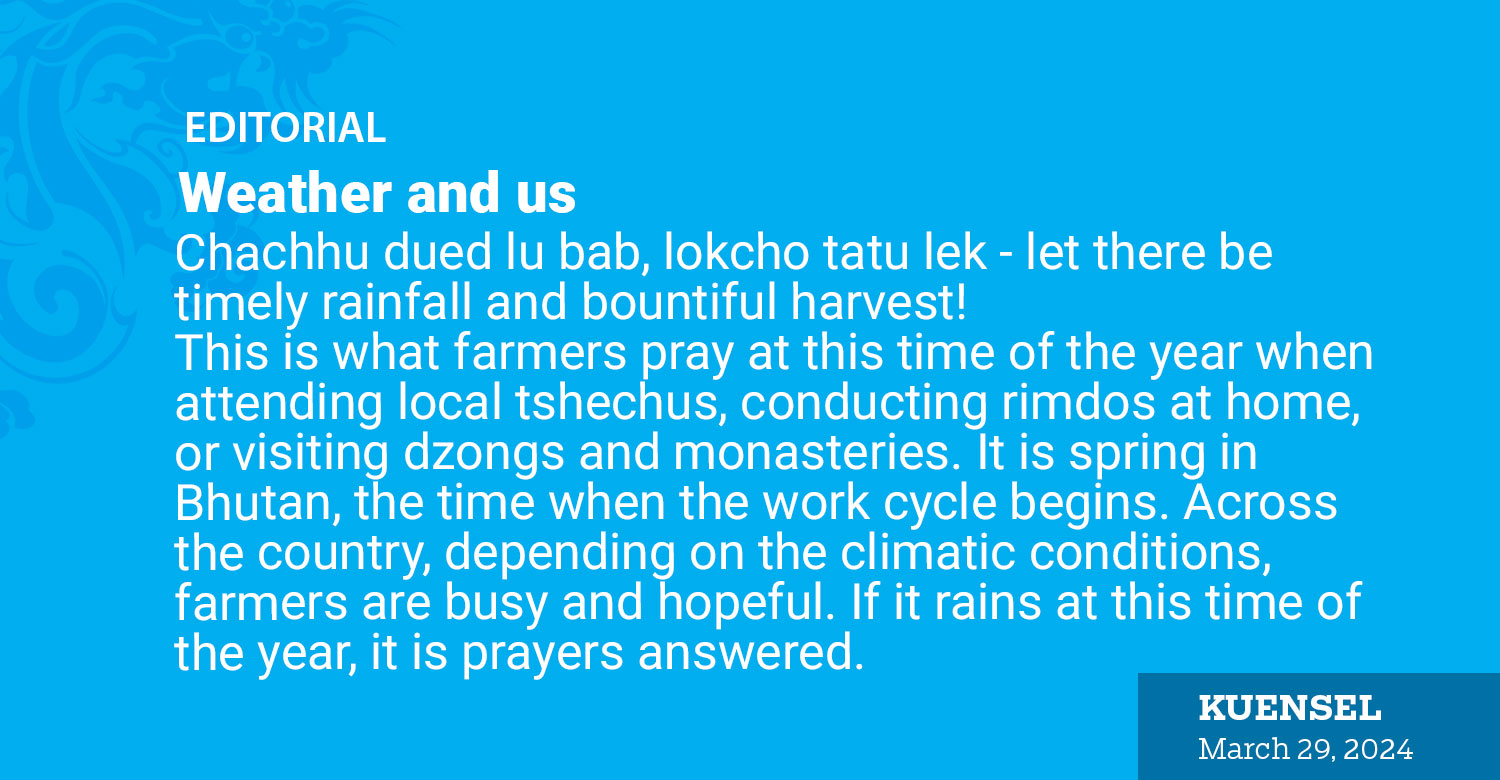Chachhu dued lu bab, lokcho tatu lek – let there be timely rainfall and bountiful harvest!
This is what farmers pray at this time of the year when attending local tshechus, conducting rimdos at home, or visiting dzongs and monasteries. It is spring in Bhutan, the time when the work cycle begins. Across the country, depending on the climatic conditions, farmers are busy and hopeful. If it rains at this time of the year, it is prayers answered.
Despite the disruptions at the mountain passes, the early spring rains this year came as a blessing for farmers across the country. In the colder places, the rain, farmers say, will help paddy seedlings, wheat, and potato fields. In places like Paro and Punakha where farmers found early locally grown vegetables as a lucrative source of income, the rain came as a big help.
Even when streams that waters the fields are at its lowest level, farmers in the Wangdue-Punakha valley, for instance, were able to till and ready their land for paddy transplantation. The paddy seedlings will thrive and save farmers from having to water them. In the warmer places, it would help farmers bring the first green chili harvest earlier on the table.
At a time when climate change and its impact is resulting in freak weather conditions, early spring showers are always welcomed. Farmers believe it heralds a good year, agriculturally at least.
Untimely rain, delayed or heavy rainfall within a short period of time, has become a challenge for those depending on agriculture. We often hear about farmers complaining about shortage of water, sometimes escalating to legal disputes.
As an agrarian society, particularly dependent on rainfall patterns, timely rainfall decides what is grown or harvested. Farmers are already feeling the impact of changing weather patterns. They cannot intervene, but pay the price. We have witnessed in the last few years how retreating monsoon in autumn damaged harvest and how late monsoon delayed paddy cultivation resulting in poor yield.
In urban Bhutan, rainfall determines the flow of water to our homes. Residents in the capital city are convinced that the continuous water supply these few days was due to the rain in the last few days. At this time of the year, the thromdes ration water supply because the sources would be drying up.
The snow on the mountains surrounding the capital city means the hydrology is good.
How long it will last, though?. There is not much in our hands when it comes to climatic conditions. We may boast about being a carbon neutral country and giving everything to environment conservation, but our actions alone are not enough to stop climate change-induced freak weather conditions. What is certain is that as a mountainous country with a fragile ecosystem, we are among the most vulnerable countries to climate change and its impact.
As we soak in the early spring showers and thank our stars, it is a good time to reflect on the impact of climate change, its impact on our weather conditions, and think of how to prepare for a dry spell and larger implications of climate change.


